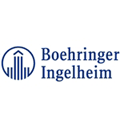
A partnership that can shape the fight against African swine fever (ASF) in China. That is the result of a joint initiative of Boehringer Ingelheim Animal Health and the Chinese Association of Animal Science and Veterinary Medicine. Together, they just published the first in-depth market report on biosecurity conditions in the country in order to better assess Chinese biosecurity levels and improve preparedness in the fight against ASF.

The report is based on the scientific analysis of a thorough survey made through the ASF Combat app and around 1,000 swine farmers contributed with their data from all over China. The results were surprising. On the one hand, numbers showed biosecurity levels greatly improved in Chinese farms compared to the time before the ASF breakout in the country. On the other hand, there is still a big gap between large-scale groups and small backyard farms. That means the investment in time, resources and education efforts pays off – and should be facilitated to reach a broader community of farmers.
“We now have a glimpse on different realities on the ground. This report gives us a more systematic and standardized biosecurity evaluation system, and contributes to the producers' overall understanding of the Chinese biosecurity level and the threats posed by ASF now and in the future. This is very important in a moment where the Chinese herds are recovering faster than expected,” says Bonnie Qian, Product Manager, China Swine Marketing.
Data evaluated by 40 academics
The survey comprised 45 questions adapted to reflect local market aspects. Its focus lays on key areas such as transportation of animals, daily farm management, feed and location. The answers were then compiled and analyzed with rigorous scientific approaches by 40 professors, who classified the farms as facing either a low, medium or high-risk of future ASF infections on their herds.
“This is a very innovative approach with a lot scientific credibility. Biosecurity is still the only way to prevent our farms from being infected with ASF, because it is very complex to develop a vaccine. For this reason, our industry does need a standardized, systematic tool to evaluate biosecurity using the same criteria. Only under these circumstances, our swine industry will recover step by step,” shares Prof. Yang Hanchun, head of the Chinese Association of Animal Science and Veterinary Medicine.
Among the key findings, 48 percent of the farms are not introducing pigs to minimize contagion risks. Among those still introducing new animals, at least 73 percent will impose them a quarantine of 30 days. At least 86 percent of the farms will run the ASF test before bringing new pigs into their own herds.
Numbers also show that over 90 percent of the farms are washing their trucks including the adoption of disinfection processes, and 84 percent realized that it is essential to dry the vehicles afterwards.
The power of training and education
According to China’s Ministry of Agriculture and Rural Affairs, around 1.2 million pigs were culled between August 2018 and December 2019 in the country. Boehringer Ingelheim Animal Health technical staff estimates that the total annual production of pigs in China shrank by more than 30 percent last year due to the spread of ASF.
For this reason, strong biosecurity protocols have been the only reliable way to deter its spreading. Apart from searching for an ASF vaccine for several years in collaboration with various world-class institutions and academics, Boehringer Ingelheim Animal Health is also working on guidelines to help farmers address this and other challenges. As no animal should suffer from a preventable disease, education and proper training make key contributions to ensure animal health and welfare.
“Our goal is to set clear, scientific-based rules to offer every farmer a checklist on how to better protect the pigs. Only when you and your neighbors are aligned, making the most to prevent ASF together, this fight will end. The industry will recover and even develop faster and better than before thanks to higher biosecurity standards for everyone alike,” explains Ryan Huang, Head of China Swine Marketing.
August 13, 2020 - Boehringer Ingelheim

